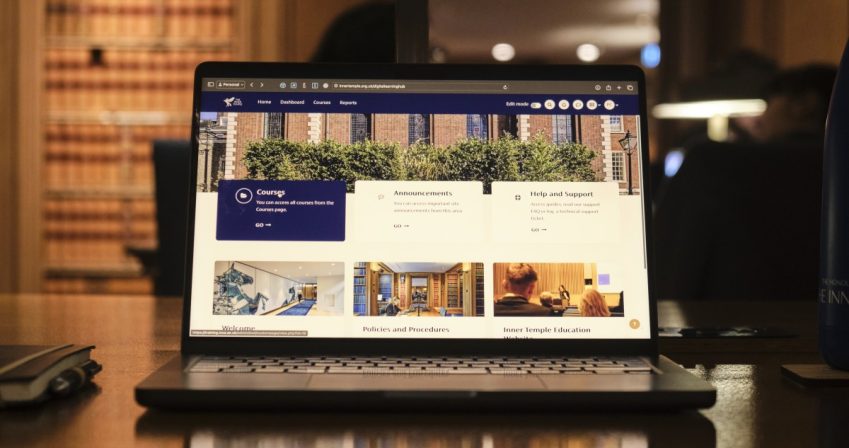The Inn will:
Education
- Call to the Bar
- Education & Training Policies
- Professor The Hon George Hampel AM KC
- International Practice Panel
- Munich – Why?
- 1500-2023 - Snapshots of The Inner Temple Library
- The Winding Stair: Inside the bitter rivalry of Edward Coke and Francis Bacon
- Dr Ivy Williams, An Enduring Inspiration to Women Lawyers
- Gilds and Things
- The History of The Inner Temple through its Treasures
- Human Rights in Britain and France: From Thomas Becket to the French Revolution
- Law in a Time of Plague - Was the Law a Good Doctor
- Lawyers and Diplomats
- The Selden Society: John Selden and Legal History
- The Selden Society: The Fire Courts
- The Smirkes and The Inner Temple
- Sub-Treasurers of The Inner Temple
- Treasures from the Library
- William Crashawe's Library
- Master H Meets...Again
- Have We "Had Enough of Experts"?
- Race and the Legal Profession
- The Absolute Ban on Assisted Dying and Lessons from Canada
- Assumptions of Responsibility
- Brain Imaging as Evidence
- Calling It Out: Professionals, their Regulators, Equity and Fairness
- The Bar of Ireland, Brexit and the Common Law
- The English Approach to Deciding Commercial Cases
- The Executive and the Courts in the Constitution
- Experts: Love or Loath? The Involvement of Experts in Legal Proceedings
- Forensic Document Examination - The Science Today
- Forensic Identification from the Hand
- The Future for Regulation of the UK Public Markets
- Giving Judges a Voice in Democracies
- The History of the Law Officers
- How the Law Should Respond to External Crises Such as COVID-19
- Lawyer or Politician: What is the Attorney General?
- The Limits of Fiduciary Rules
- Memory as Evidence
- Politics and the Law
- The Predicament and Agency of Refugees
- Previous Lecture Series and Speakers
- Proof in International Criminal Trials
- Reforming the Law of Contempt of Court
- A Public Health Approach to Equality Law
- The Role of the Medical Examiner
- 'Sales' on Retention of Title Terms
- Show me the money!
- Sport - Law and Ethics
- The Wild and Ridiculous Doctrine of Equality
- What Does It Mean to Be Anti-Racist in a Profession Full of Privileged People?
- The Work of UNIDROIT and the Future for the International Harmonisation of Commercial Law
- AI: Risks and Benefits
- Assisted Dying
- Asylum and Immigration: Do Sovereign Island Nations have a Duty to Provide Refuge?
- Britain's Unwritten Constitution
- The Crime of Ecocide
- Do Magnitsky Type Sanctions Develop the Rule of Law?
- Does the Bar Need to Communicate and Market Itself More in the Modern World?
- Environmental Law: Regulation and the Right to Protest
- Global Responses to the Forcibly Displaced
- Handing Back the Past: Cultural Repatriation
- Is Anything More Needed to Ensure Freedom of Speech?
- Is the Presumption of Innocence Alive and Well?
- Is There a Case for Anonymity in Social Media?
- Is Our Adversarial System Fit for Purpose?
- Is it Better to Review or Monitor Terror Laws? The UK and Australian Positions Compared
- Peace vs Justice
- Prison Reform
- The Rule of Law in Times of International Conflict
- Should UK Judges and ex-Judges Be Sitting in Hong Kong?
- Should our Constitution Protect Against Party Elected Leaders?
- Ukraine War: Peace-making Ahead – Traditional Methods of Accountability or New Solutions?
- Special Gandhi Lecture
- What Does a Master of the Bench Do?
- Frequently asked questions
Home › Education › Education & Training Strategy › Strategic Priorities › Being Innovative
Being Innovative
- Implement a roadmap for our “Digital Learning Hub” to enhance accessibility, engagement, and effectiveness of educational delivery.
- Use technology to enhance our outreach and support programmes including mentoring and careers advice.
- Use technology to reduce our administrative burden and reduce our carbon footprint.
- Plan and adapt innovatively when there are changes in the external environment.


We expect many technological advances over the next five years and will be actively seeking to harness these to improve efficiency and the quality of learning experience. The Digital Learning Hub is a priority area for development, as we aim to introduce more online content to our programmes and create a more interactive and engaging learner experience.
Many of our current support programmes (such as mentoring and mock interviews) still rely heavily on manual administration. We will identify opportunities to use technology to improve accessibility, structure and the evaluation of these services.
We will be alert to external changes and plan for any impact on our educational programmes. This could include the introduction of apprenticeships, use of generative artificial intelligence or regulatory changes.